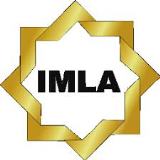PENETAPAN ASAL USUL ANAK TANPA MELALUI TES DNA BESERTA AKIBAT HUKUMNYA
DOI:
https://doi.org/10.21274/ahkam.2022.10.1.131-150Keywords:
Child Origin, DNA Test, Islamic Law, Positive LawAbstract
Marriage is seen as a sacred event and a significant
milestone in human life, and religious components are
crucial to its continuation. Marriage Law Number 1 of
1974 takes into account interfaith unions. But because
their original dads frequently do not accept them,
illegitimate children can cause issues in society with
relation to accountability, such as who is responsible
for providing for the children's financial support, care,
and education. In this research of legal ramifications
and determining a child's origin without using a DNA
test are examined. The study adopts a normative legal
approach. The study's findings indicate that Article 43
Paragraph 1 of the Constitution regulates the
requirements of life and defines what is meant by a
child born outside of wedlock as having a legal status
that is limited to a civil relationship with the mother
and her family. Legally speaking, children's financial
and material well-being is the responsibility of their
mother and her family. However, as noted in the
Constitutional Court Decision No. 40/PPU-VIII/2010,
biological fathers are also legally required to take
care of, raise, and care for children born outside of
marriage if they do not accept the child's status
References
Asrofi, “Penetapan Asal Usul Anak dan Akibat Hukumnya dalam Hukum Positif”, dalam http://www.new.pa-mojokerto.go.id/114-informasi-pengadilan/263-penetapan-asal-usul-anak-dan-akibat-hukumnya-dalam-hukum-positif, Pengadilan Agama Mojokerto, diakses 9 Agustus 2022.
Bowontari, Sandra, "Pengakuan dan Pengesahan Anak di Luar Nikah Beserta dengan Akibat Hukumnya", Lex Privatum, Vol. VII, No. 4, Tahun 2019.
Farouk, Yazir & Rena Pangesti, “Rezky Aditya Dinyatakan Ayah Biologis Putri Wenny Ariani Tanpa Tes DNA, Apa Pertimbangan Hakim PT Banten?” dalam https://www.suara.com/entertainment/2022/05/25/063500/rezky-aditya-dinyatakan-ayah-biologis-putri-wenny-ariani-tanpa-tes-dna-apa-pertimbangan-hakim-pt-banten, Suara.com, diakses 25 Mei 2022.
Gregg, Herman, “Commentary: Family Law: What causes divorce”, Wisconsin Law Journal; Milwaukee, 8 Mei 2013.
Jauhari, Iman, Hak-hak Anak dalam Hukum Islam, Jakarta: Pustaka Bangsa Press, 2003.
Korbatieh, Souha, “Evidence Laws in Sharia and the Impact of Modern Technology and DNA Testing”, Australian Journal of Islamic Studies, Vol. 5, No. 3, Tahun 2020.
Pasal 42 Undang-Undang Nomor 1 Tahun 1974 tentang Perkawinan.
Putusan Pengadilan Negeri Tangerang Nomor 746/Pdt.G/2021/PN.Tng tanggal 3 Februari 2022.
Putusan Pengadilan Tinggi Banten Nomor 109/PDT/2022/PT BTN tanggal 26 April 2022.
Rahayu, Tajqia Qalbu, Karwiyah, & Adinda Putri Pertiwi, “Peran Tes DNA terhadap Kedudukan Status Anak Li’an dari Hasil Perkawinan yang Sah Ditinjua dari Perspektif Hukum Islam dan Hukum Positif di Indonesia”, Jurnal Hukum Lex Generalis, Vol. 3, No. 2.
Sabrina, Nahdiya dkk, "Discrimination against Children Born Outside of Marriage in Indonesia", International Journal of Multicultural and Multireligious Understanding, Vol. 7, No. 9, Tahun 2020.
Sallatu, Awaluddin, “Efektivitas Pemenuhan Hak Anak Setelah Perceraian (Studi Kasus di Kota Makassar)”, El-Iqtishady, Volume 1, Nomor 2, Desember 2019.
Savara, “Hukum Asal Usul Anak Hasil Zina Menurut Hukum Perkawinan Islam Berdasarkan Hasil Tes DNA (Studi Kasus Putusan Pengadilan Agama Jakarta Selatan No. 0121/Pdt.G/2009/PA.JS)”, Tesis, Universitas Indonesia, 2010.
Soeroso, R., Pengantar Ilmu Hukum, Jakarta: Sinar Grafika, 2011.
Tapobali, Maria Goreti Beto, “Kekuatan Hukum Hasil Tes Deoxyribonucleic Acid (DNA) Terhadap Status Anak Di luar Nikah yang tidak Diakui oleh Ayah Biologisnya dalam Perspektif Hukum Perdata”, Jurnal Kajian Hukum, Vol.6, No.2, Tahun 2021.
Uesman, Djono W., “Kasus Anak Kandung Ditolak Divonis A Contrario”, dalam https://publika.rmol.id/read/2022/05/28/535131/kasus-anak-kandung-ditolak-divonis-a-contrario, pubika.rmol.id, diakses 28 Mei 2022.
Umar, Masyithah & Anwar Hafidzi, "Examination by Deoxyribonucleic Acid (DNA) Test of Children Privileges as Legitimate Evidence in Indonesia Marriage Law", Revista Aacrgentina de Clinica Psicologica, Vol. 29, No. 3, Tahun 2020.
Waller, Maureen R., "Getting the court in your business: Unmarried parents, institutional intersectionality, and establishing parenting time orders in family court", Social Problems, Vol. 67, No. 3, Tahun 2021.
Wulandari, Riri, "Status Nasab Anak Di Luar Nikah Perspektif Mazhab Hanafi Dan Mazhab Syafi’i Dan Implikasinya Terhadap Hak-Hak Anak", Skripsi, Universitas Islam Negeri Raden Intan Lampung, 2018.













